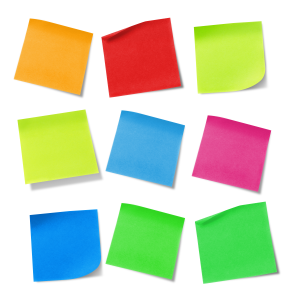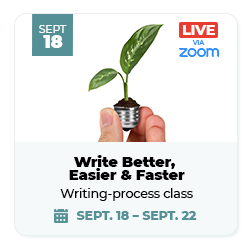Save time, effort with fill-in-the-blanks writing templates
What a great assignment I just completed for a technology comms team: I templated their blog posts, intranet announcements, lead generation emails, news releases, speeches, success stories and white papers.

Now all the writers have to do is to fill in the blanks with their fascinating research and delightful prose. No more reinventing the wheel.
Over the years, I’ve templated everything from event invitations to proposals to webpages for my clients.
Save reading — and writing — time.
I love writing templates because they:
- Save communicators time. Story patterns exist, and a savvy writer can deconstruct them. Instead of reinventing them with each piece, spend your time coming up with brilliant facts and figures and polishing your prose.
- Overcome information overload. Once readers are familiar with the template, they don’t have to learn each subsequent, say, webpage’s structure, write Martin J. Eppler and Jeanne Mengis in “Preparing Messages for Information Overload Environments,” an IABC Research Foundation report. That reduces processing time and effort.
- Result in more effective communications A group of Israeli researchers found that nine out of 10 award-winning ads used templates; only 2.5% of less successful ads had.
To write better, easier and faster, template your press releases, webpages, proposals, case studies — even your personality profiles. The secret is to develop standard structures that are flexible enough to cover a variety of subjects.
Here are three templates to consider:
1. Story tables or grids
Are you comparing X number of items by Y number of characteristics? Make your story a table or grid. Here’s why:
Benefits of story tables | |
| Tables make stories: | Because they: |
| Shorter | Replace transitions with table cells |
| Easier to read | Are easy to scan and process |
| Easier to write | Use a fill-in-the-cells format |
2. Lists
Listicles and other list stories make it easy for skimmers to get the gist of the message without doing a deep dive on the topic. No wonder they’re so popular on social media and other platforms.
3. Case studies
For case studies, testimonials — even mini narratives — try this simple structure:
- Problem
- Solution
- Results
Write by number.
Words like template, formula and recipe are sometimes seen as profanities in a creative field like writing. But good writing is at least as much science as art. And you can’t argue with results like “easier to read” and “easier to write.”
No doubt about it: T-e-m-p-l-a-t-e is not a four-letter word.
What template could you use for your next piece?
Work with — not against — your brain
While we talk a lot about what to write — More stories! Fewer words! Shorter sentences! — we don’t focus so much on how.

Writing is hard because we weren’t taught how to write. Instead, we were taught how to edit: how to spell, punctuate and use the right grammar.
But there is a how to writing. Learn a few simple steps that will make your writing time more effective and efficient at How to write Better, Easier & Faster — our writing-process workshop starting Sept. 18.
You’ll learn to invest your time where it’ll do you the most good … stop committing creative incest … even save time by editing before writing.
Save up to $100 with our group discounts.
___
Sources: Martin J. Eppler and Jeanne Mengis, “Preparing Messages for Information Overload Environments” (PDF), IABC Research Foundation, 2009
Jacob Goldenberg, David Mazursky, and Sorin Solomon, “The Fundamental Templates of Quality Ads,” Marketing Science 18 (1999), 333-51
